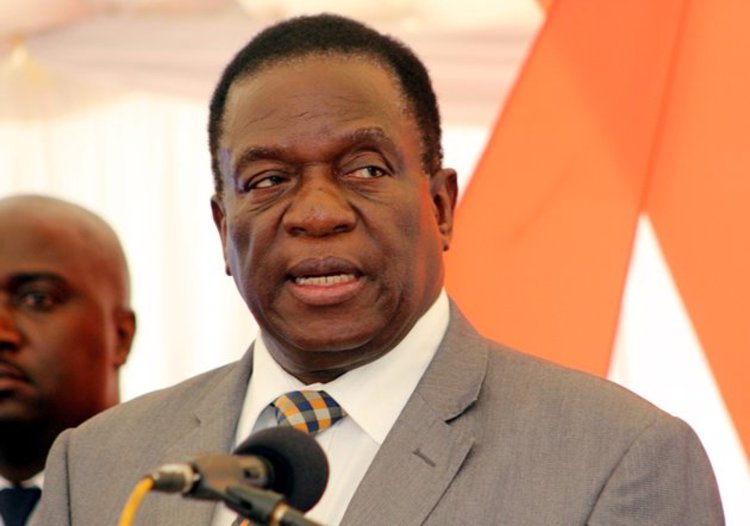Update: The article mentioned that the KPIs were set by the President, as they were published in the Zimbabwe Independent, but they KPIs were actually set by a citizen and went viral.
The Ministers in the new Cabinet have been given their key performance indicators and the new ICT Minister Kazembe Kazembe’s mandate has some interesting targets to meet.
President Mnangagwa set the following KPI’s for the ICT ministry:
- Privatise NetOne and Telecel
- Partially privatise TelOne and Zarnet; and
- Reduce date and bandwidth costs by licencing more players and enhancing competition.
Privatisation of NetOne & Telecel
The privatisation of these two MNOs has been on the table for a while with former ICT Minister Supa Mandiwanzira having been given this mandate back when the “new dispensation” took over. Unfortunately, the 8 months he had were not enough for him to complete that one. There have been murmurs of moves for both entities so Kazembe Kazembe may have less of a problem carrying this one out.
- Back in February, the Diaspora Infrastructure Development Group was said to be looking at investing in NetOne.
- In August, there were four different investors said to be looking at acquiring a 45-50% stake in NetOne.
The new Minister will have a lot more work to do with Telecel as there seems to be less interest in Zim’s least popular mobile network operator. With ownership issues at Telecel looking like they won’t be ending anytime soon, that might make the company more undesirable for investors.
Partial privatisation of TelOne and ZARNet
TelOne has been on a steady ascent since Chipo Mtasa took over the reigns. Partial privatisation can only boost the company’s growth.
ZARNet’s partial privatisation is a bit more interesting as the company’s original mandate was to provide internet to the government, schools and research institutions. More recently, however, ZARNet were announced to be merging with Africom and Powertel. This merger will probably result in a more public-facing ZARNet. If that is the case then partial privatisation clearly makes sense as Africom and Powertel have been failing to keep up with competitors ZOL and TelOne.
Even in the event that ZARNet is being referenced in its pre-merger state, partial privatisation does make sense as the government will still ensure that ZARNet does not stray from its mandate whilst using the capacity provided by whoever acquires a stake to carry out the said mandate effectively.
Partial privatization is common in transition economies and it enables the government to sustain revenues whilst simultaneously boosting economic efficiency. Privatization in transition countries has often been partial, with the state retaining a non-controlling ownership share in privatized assets and if efficiency is the main objective then that will probably be the case with TelOne and ZARNet.
Reduction of data and bandwidth costs by licensing more players…
Data in Zim is more expensive than in most African countries; in fact, there is only one African with more expensive data – Equitorial Guinea. This is a serious concern and one of the biggest contributors to why WhatsApp has become synonymous to the internet within Zimbabwe. The government is right to want to deal with this but it’s yet to be seen if there any interested players to licence.
Usually, more network providers = cheaper prices. Though the government has already set about revising the ease of doing business locally they should continue to do more in order to entice more people to move into network provision. With a population of around 14 million, the only way new players will move into the telecoms space is if there are real incentives for them to benefit from.
The mandate set for Kazembe Kazembe seems quite reasonable and it seems like he won’t have a hard time getting NetOne out of the government’s hands as interest already seems high. The privatisation of NetOne and Telecel will probably end up going a long way to fulfilling the objective of making data cheaper…

3 comments
If Telecel were seen to be shareholder-stable it would have been a great idea to merge Telecel with Netone as a start. That would give the resultant entity sufficient subscriber base and installed capacity to kick-start competition with the market leader, Econet Wireless. Economies of scale are key. From the two management teams I am hopeful that one composite powerful enough management team could be created as both entities seem to be reeling in management perfomance issues. In addition, privatising the combined asset will most probably attract a bigger price for the % to be sold. Trying to privatise the entities in their current state will simply be a give away especially given that Netone had a $57 million loss in 2017….
Alternatively, do a management contract with some really experienced mobile management teams in order to bring the companies up to scratch in terms of performance. After two or three years the improved performance will cause a higher price.
Or simply put them on the stock exchange and the rest will fall in place.
Reduce date and bandwidth costs by potraz lowering license fees !!!